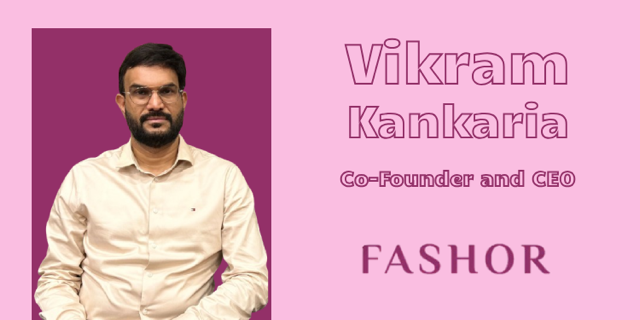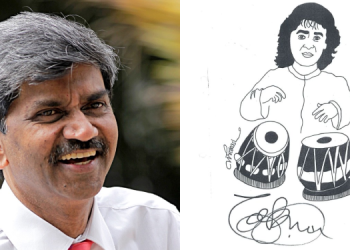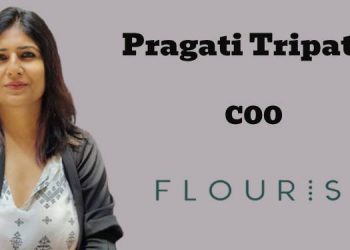Fashor is a D2C ethnic fashion brands. It recently raised $5 million in funding. The recent capital infusion from Blume Ventures to enhance supply chain, scale branding efforts, and accelerate omnichannel expansion, including 100+ exclusive brand outlets (EBOs).
Fashor has also partnered with Sara Ali Khan as the face of the brand, aimed at engaging millennials and older Gen Z, blending modern designs with traditional Indian craftsmanship. Fashor’s website and app now account for over 30% of the brand’s revenue, and digital platforms are transforming consumer shopping behaviour. Fashor introduces 200+ new styles every month, catering to a wide variety of occasions, including casual wear, office wear, and festive collections. Offering boutique-like, designer styles at accessible price points (Rs. 1,000 – Rs. 4,000), while maintaining a strong focus on craftsmanship and fabric quality.
Fashor’s range of sizes from S-5XL, ensuring every woman, regardless of body type, has access to stylish, well-fitting ethnic wear. The brand’s emphasis on intricate hand embroideries, embellishments, and using traditional Indian textiles in its designs. The vision is to grow Fashor into India’s leading ethnic fashion brand over the next three years, expanding both online and offline, with a focus on international markets like Dubai and Malaysia.
Medianews4u.com caught up with Vikram Kankaria, Co-Founder and CEO of Fashor
1) What was the market gap seen in the ethnic fashion segment that led to the launch of Fashor?
When Priyanka and I launched Fashor, we identified a significant gap in the ethnic fashion segment: a lack of accessible, high-quality, and affordable designer wear. While there were numerous options in the premium and luxury segments, we saw an opportunity to offer elegant, contemporary ethnic fashion at a price point that was attainable for a broader audience. Many women were seeking stylish and well-crafted ethnic and fusion wear without the premium price tag. Our aim was to create a brand that blended traditional craftsmanship with modern fashion trends, making designer wear accessible to women across various demographics and regions. This gap provided us with the chance to build a brand that delivers exceptional value while celebrating the spirit of new-age Indian women.
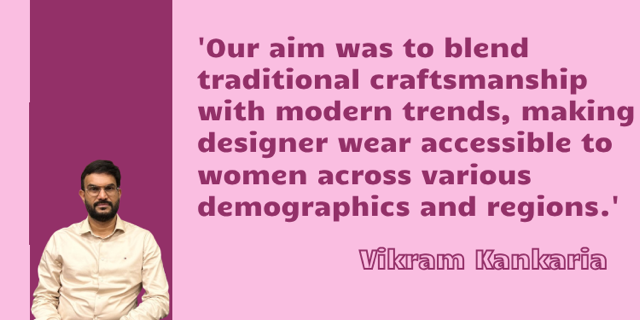
2) What are the growth expectations for the festive season?
For the festive season, we have high growth expectations. Historically, festive periods have been crucial for the fashion industry, and we anticipate a significant uptick in demand for ethnic and fusion wear. With our recent investments and expansion plans, including the introduction of new styles and collections tailored to festive occasions, we expect a substantial increase in both online and offline sales.
The festive season is an ideal time for us to showcase our diverse range of products and connect with consumers who are looking to enhance their wardrobes for celebrations. We have also ramped up our marketing efforts and strategic collaborations to ensure we make the most of this key period.
3) What are the expectations from investors like Blume Ventures in terms of profitability at scale?
Our expectations from investors like Blume Ventures are focussed on achieving profitability at scale while maintaining the high standards of quality and value that Fashor is known for. We are working closely with Blume Ventures to leverage their expertise and support to scale our operations efficiently. The investment will enable us to enhance our supply chain, expand our omnichannel presence, and strengthen our branding efforts.
We aim to achieve sustainable growth and profitability by optimising our processes, increasing our market reach, and continually delivering exceptional products and experiences to our customers. Blume Ventures’ support is instrumental in helping us realize these goals and drive long-term success.
4) Could you talk about the plans to enhance supply chain, scale branding efforts, and accelerate omnichannel expansion, including 100+ exclusive brand outlets (EBOs
We have outlined a comprehensive strategy to enhance our supply chain, scale our branding efforts, and accelerate our omnichannel expansion. First, we are investing in strengthening our supply chain to ensure efficiency and reliability. This includes improving our production capabilities, optimising inventory management, and enhancing logistics to meet growing demand.
In terms of branding, we are ramping up our marketing initiatives to build a stronger brand presence and connect with a wider audience. Our recent association with Sara Ali Khan as our brand ambassador is a key part of this strategy, and we are excited about the impact it will have on our brand’s visibility and appeal.
For omnichannel expansion, we are planning to open over 100 exclusive brand outlets (EBOs) across India. This will enable us to provide a more immersive shopping experience for our customers and increase our reach in both established and emerging markets. These EBOs will complement our strong online presence and help us build a more robust and integrated retail network.
Overall, our focus is on delivering a seamless and exceptional customer experience across all channels while driving growth and expanding our market presence. We are confident that these efforts will solidify Fashor’s position as a leading fashion brand and contribute to our long-term success.
5) What prompted Fashor to tie up with Sara Ali Khan? How effective will she be in helping the company engage millennials and older Gen Z?
Our decision to tie up with Sara Ali Khan was driven by her strong alignment with Fashor’s brand ethos and her widespread appeal among millennials and older Gen Z. Sara’s vibrant personality and contemporary style resonate deeply with our target audience, who seek a blend of modernity and tradition in their fashion choices.
Her influence and relatable image make her an ideal ambassador for us as we aim to enhance our brand’s visibility and connect with a younger demographic. We believe that her involvement will significantly boost our engagement with millennials and Gen Z, driving brand affinity and awareness among these key consumer groups.
6) Is she just an endorser or a business partner?
Sara Ali Khan is primarily a brand ambassador for Fashor, and her role focuses on representing our brand and endorsing our products through various campaigns. While she is not a business partner in the traditional sense, her collaboration is pivotal in shaping our brand image and connecting with our audience. Her endorsement will play a crucial role in amplifying our message and increasing our market reach.
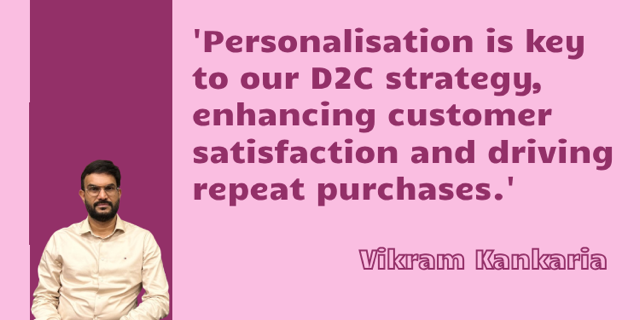
7) The aim is to blend modern designs with traditional Indian craftsmanship. Is this the company’s USP?
Yes, blending modern designs with traditional Indian craftsmanship is indeed a key component of Fashor’s USP. We strive to create a unique fusion that marries contemporary fashion trends with rich ethnic heritage, offering our customers stylish and culturally resonant options. This approach allows us to provide a distinctive product range that appeals to women who appreciate both modern aesthetics and traditional craftsmanship, setting us apart in the competitive fashion landscape.
8) How is the shift towards comfortable, affordable fashion driving the demand for ethnic and fusion wear in Metros and Tier 1 cities?
The shift towards comfortable, affordable fashion has significantly influenced the demand for ethnic and fusion wear, particularly in Metros and Tier 1 cities. Consumers are increasingly seeking fashion that not only looks stylish but also offers comfort and practicality for daily wear.
Our focus on delivering high-quality, affordable designs aligns with this trend, making our offerings highly attractive to urban consumers who want to balance elegance with ease. This shift has driven a growing interest in ethnic and fusion wear, as it provides a modern take on traditional attire while meeting the demands for both comfort and affordability.
9) D2C accounts for over 30% of the brand’s revenue. Is personalisation key to success?
Absolutely, personalisation is a critical component of our Direct-to-Consumer (D2C) strategy. By offering tailored shopping experiences and customized recommendations, we are able to better meet the individual preferences and needs of our customers. Personalisation enhances customer satisfaction and loyalty, driving repeat purchases and positive word of mouth.
We leverage customer data to understand buying patterns, preferences, and behaviours, allowing us to create targetted marketing campaigns and product offerings that resonate with our audience. This focus on personalisation not only improves the shopping experience but also contributes significantly to our revenue growth.
10) Consumers will look for product information on retail media platforms. How will Fashor leverage this opportunity?
Retail media platforms are a valuable opportunity for Fashor to connect with consumers where they are actively searching for product information. We plan to leverage these platforms by providing detailed and engaging content about our products, including high-quality images, comprehensive descriptions, and customer reviews. By optimising our presence on these platforms, we can enhance visibility, drive traffic to our website and marketplaces, and ultimately increase conversions. Additionally, we will use data from these platforms to gain insights into consumer behaviour and preferences, allowing us to refine our marketing strategies and improve our product offerings.
11) What role is AI playing for Fashor in areas like affordable price points, marketing, designing products, and styles?
Artificial Intelligence (AI) is playing a transformative role across multiple aspects of our business. In terms of affordable price points, AI helps us optimize our pricing strategy by analysing market trends, competitor pricing, and consumer demand, ensuring that we remain competitive while maintaining profitability. For marketing, AI enables us to create highly targeted campaigns through advanced data analytics and machine learning algorithms, enhancing our ability to reach and engage with the right audience.
In product design, AI assists in predicting fashion trends, automating design processes, and personalising product recommendations based on consumer preferences. Overall, AI helps us streamline operations, improve decision-making, and deliver a more personalised and efficient shopping experience for our customers.
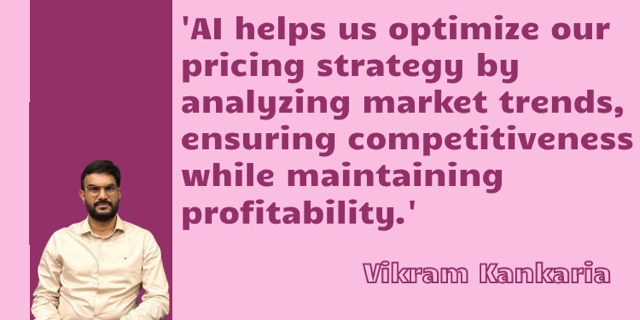
12) Does Fashor do omni-channel marketing activities to spread awareness? Or is there a bigger focus on digital marketing?
Fashor employs a comprehensive omni-channel marketing strategy to maximise our reach and brand awareness. While digital marketing plays a crucial role in our overall strategy, allowing us to connect with a broad audience through social media, search engines, and online marketplaces, we also invest in traditional channels.
This includes collaborations with offline retail stores, strategic partnerships, and experiential marketing events. By integrating both digital and traditional approaches, we ensure a cohesive brand presence across various touchpoints, enhancing our ability to engage with customers both online and offline.
13) How important is word of mouth?
Word of mouth is extremely valuable for Fashor. It represents a form of organic promotion that builds trust and credibility, as recommendations from friends, family, and influencers often carry more weight than traditional advertising. We actively encourage positive word of mouth by delivering exceptional customer experiences and high-quality products, which naturally leads to customer referrals and testimonials.
This grassroots level of advocacy helps us build a loyal customer base and enhances our brand’s reputation in the market.
14) Besides India, could you shed light on the focus on international markets like Dubai and Malaysia? What is the potential?
Our expansion into international markets such as Dubai and Malaysia is an exciting and strategic move. Both regions offer significant growth potential due to their diverse and fashion-conscious consumer base. In Dubai, the cosmopolitan lifestyle and high demand for luxury and designer wear align well with Fashor’s offerings.
Similarly, Malaysia’s growing fashion market presents opportunities to introduce our unique blend of modern and traditional styles. By leveraging our strong design ethos and affordable pricing, we aim to capture a substantial share of these markets. Our approach includes localising our marketing efforts, establishing partnerships with key retailers, and enhancing our brand’s presence through targeted campaigns. We are optimistic about the potential for growth and are committed to expanding our international footprint in these regions.

